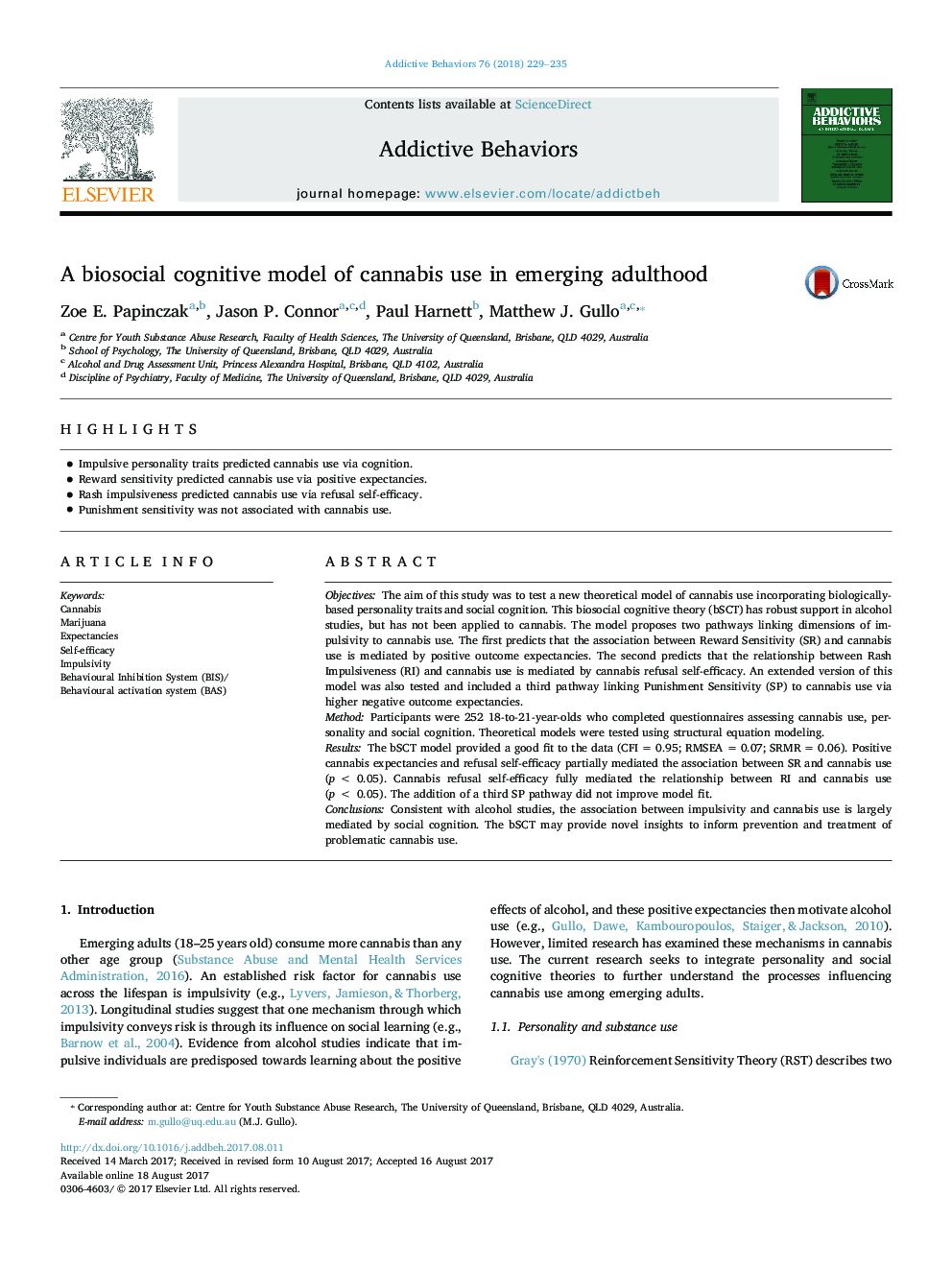| کد مقاله | کد نشریه | سال انتشار | مقاله انگلیسی | نسخه تمام متن |
|---|---|---|---|---|
| 5037629 | 1472495 | 2018 | 7 صفحه PDF | دانلود رایگان |
- Impulsive personality traits predicted cannabis use via cognition.
- Reward sensitivity predicted cannabis use via positive expectancies.
- Rash impulsiveness predicted cannabis use via refusal self-efficacy.
- Punishment sensitivity was not associated with cannabis use.
ObjectivesThe aim of this study was to test a new theoretical model of cannabis use incorporating biologically-based personality traits and social cognition. This biosocial cognitive theory (bSCT) has robust support in alcohol studies, but has not been applied to cannabis. The model proposes two pathways linking dimensions of impulsivity to cannabis use. The first predicts that the association between Reward Sensitivity (SR) and cannabis use is mediated by positive outcome expectancies. The second predicts that the relationship between Rash Impulsiveness (RI) and cannabis use is mediated by cannabis refusal self-efficacy. An extended version of this model was also tested and included a third pathway linking Punishment Sensitivity (SP) to cannabis use via higher negative outcome expectancies.MethodParticipants were 252 18-to-21-year-olds who completed questionnaires assessing cannabis use, personality and social cognition. Theoretical models were tested using structural equation modeling.ResultsThe bSCT model provided a good fit to the data (CFI = 0.95; RMSEA = 0.07; SRMR = 0.06). Positive cannabis expectancies and refusal self-efficacy partially mediated the association between SR and cannabis use (p < 0.05). Cannabis refusal self-efficacy fully mediated the relationship between RI and cannabis use (p < 0.05). The addition of a third SP pathway did not improve model fit.ConclusionsConsistent with alcohol studies, the association between impulsivity and cannabis use is largely mediated by social cognition. The bSCT may provide novel insights to inform prevention and treatment of problematic cannabis use.
Journal: Addictive Behaviors - Volume 76, January 2018, Pages 229-235
